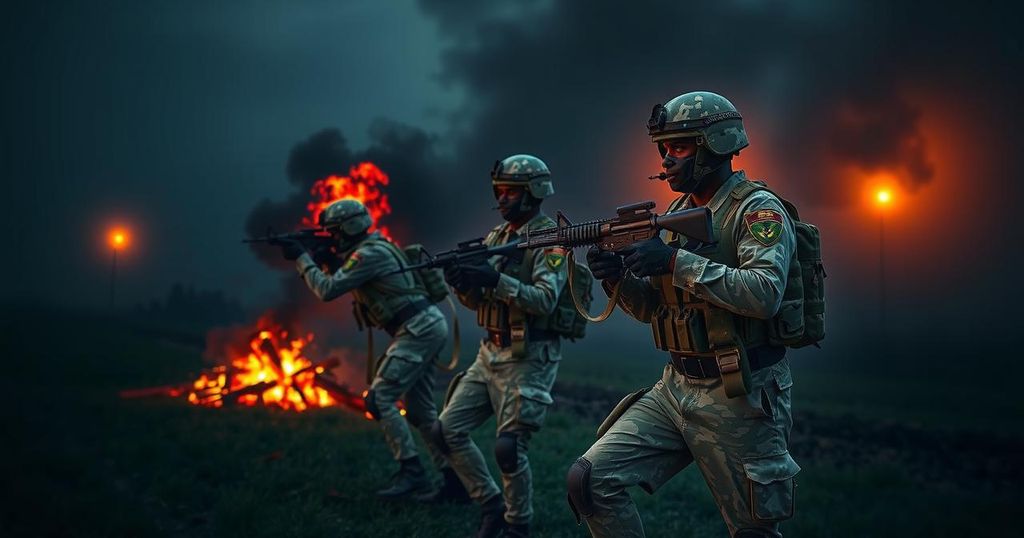Mozambique Faces Turmoil as Army Deployed Amidst Protests Following Elections

Mozambique has deployed military forces in Maputo to manage escalating protests following allegations that the Frelimo party rigged the October 9 presidential elections. Protests have turned violent, with police clashing with demonstrators amidst accusations of excessive force. International observers have questioned the legitimacy of the elections, while opposition parties have faced serious threats, further exacerbating the crisis.
Mozambique is experiencing significant unrest following the recent presidential elections, leading to the deployment of military forces in the capital, Maputo. Protests erupted after the opposition rejected the results of the October 9 elections, which saw the incumbent Frelimo party extend its long-standing rule by alleging electoral fraud. Security forces are working to maintain order amidst widespread demonstrations, characterized by roadblocks and confrontations between protesters and police employing tear gas and rubber bullets. The situation escalated as members of the opposition accused the Frelimo party of misconduct during the electoral process, including ballot rigging. Following the election, police have faced fierce criticism for their response to peaceful protests, resulting in multiple casualties and allegations of violence. Observers noted that international standards for a free and fair election were not met, as the results await validation by the Constitutional Council. Amidst growing tensions, public safety remains a priority, with soldiers patrolling the streets and securing key locations. General Omar Saranga of the Mozambican armed forces emphasized their role in supporting police efforts to uphold public order in these turbulent times. The political landscape in Mozambique is precarious, as anger swells further following the assassination of two prominent opposition figures, intensifying calls for justice and accountability. The Southern African Development Community is set to address the crisis at an upcoming summit, demonstrating regional concern for the stability of Mozambique. Neighboring countries, specifically South Africa, are already taking precautionary measures, including increased security at border crossings.
The context of Mozambique’s current unrest stems from the contentious elections held on October 9, 2024, in which the ruling Frelimo party retained its hold on power. The Frelimo party, in governance since the country’s independence from Portugal in 1975, has faced accusations of electoral fraud, undermining the democratic process. Protests have erupted nationwide, driven by allegations of ballot stuffing and suppression of dissent, with reports of excessive police force illustrating the heightened tensions. The opposition’s rejection of the election results has further fueled discontent, complicating the political atmosphere in the nation.
In summary, Mozambique is facing a critical juncture as the military is deployed to assist police in controlling unrest following disputed election results. With allegations of fraud and violent crackdowns on protestors, the situation has drawn international scrutiny and regional attention. As political tensions escalate, the future of governance in Mozambique remains uncertain, with significant implications for stability in the region.
Original Source: apnews.com







